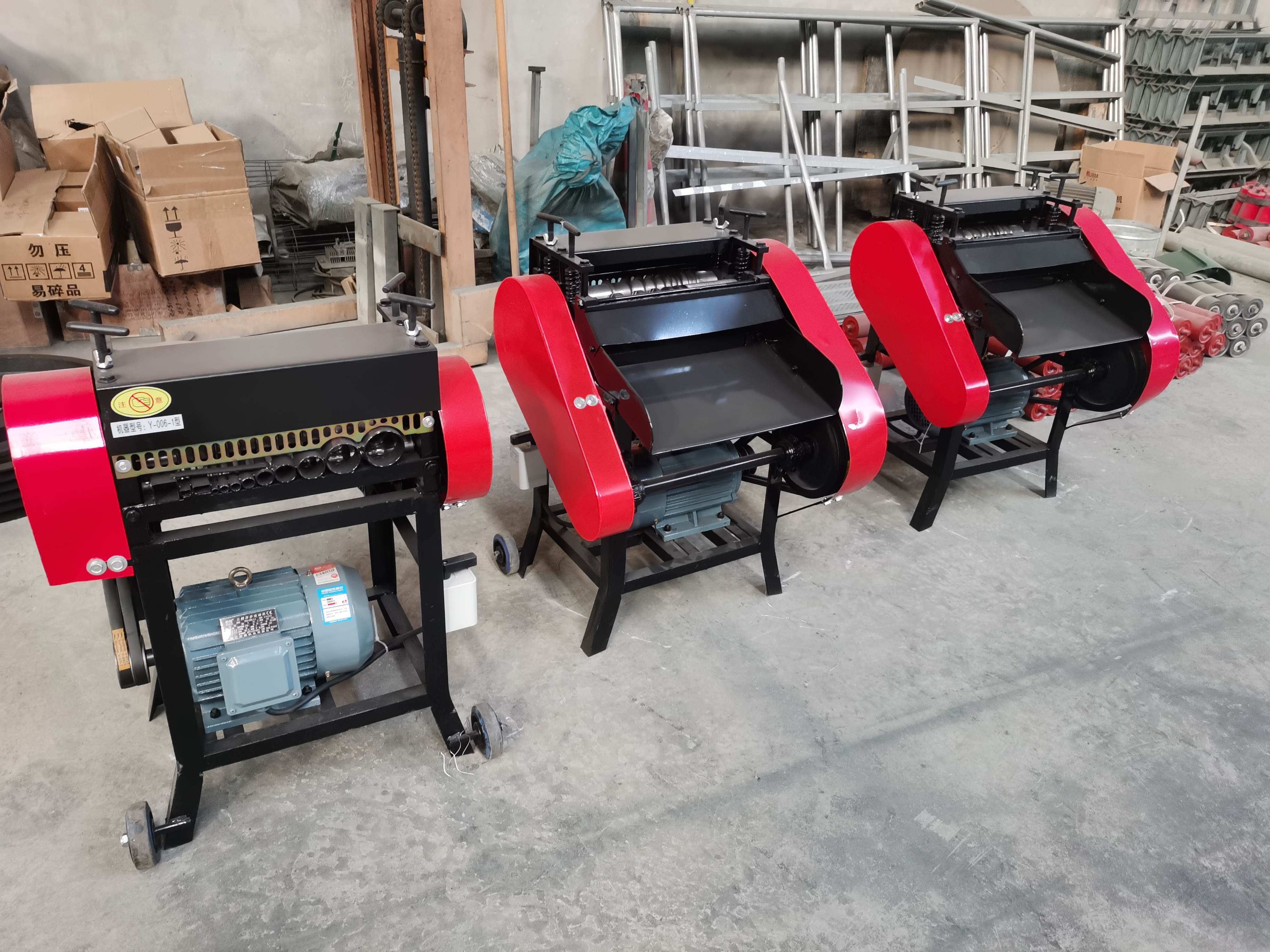

sept. . 07, 2024 08:06 Back to list
Metal Recycling Plant A Sustainable Approach to Waste Management
In recent years, the importance of recycling has gained unprecedented attention, particularly in the context of metal recycling plants. These facilities play a crucial role in sustainable waste management by repurposing metals that would otherwise contribute to landfills, thus conserving natural resources and reducing environmental impact. The process of metal recycling involves collecting, processing, and reusing scrap metal, which can come from various sources, including old vehicles, appliances, construction debris, and industrial scrap.
The operation of a metal recycling plant begins with the collection of scrap metal, which is sorted into ferrous and non-ferrous categories. Ferrous metals contain iron, while non-ferrous metals include aluminum, copper, brass, and stainless steel. This sorting process is vital as it ensures that different metals are processed appropriately to maximize efficiency and quality in the recycling process.
Once the metals are sorted, they undergo a series of processes such as shredding, baling, and melting. Shredding breaks down larger pieces of metal into smaller, manageable sizes, making the subsequent stages more efficient. Baling involves compacting the shredded metal into bales, which are easier to transport and store. Finally, the metals are melted down in large furnaces, where they reach high temperatures that allow them to be reformed into raw material. This molten metal can then be cast into new shapes or forms, ready to be used in manufacturing new products.

One of the most significant benefits of metal recycling is its environmental impact. Recycling metal reduces the need for mining, which not only conserves natural resources but also minimizes the ecological damage associated with mining operations. Additionally, metal recycling uses significantly less energy compared to producing new metal from ore, leading to reduced greenhouse gas emissions. For instance, recycling aluminum saves up to 95% of the energy required to produce new aluminum from raw materials.
Moreover, metal recycling plants contribute to the economy by creating jobs and fostering sustainable practices within communities. They promote environmental awareness and encourage the public to adopt more sustainable habits, such as recycling and reusing materials. Governments and organizations are increasingly recognizing the importance of supporting such facilities through policies and incentives that promote recycling initiatives.
In conclusion, metal recycling plants are vital players in the pursuit of sustainability. By transforming scrap metal into valuable resources, they not only aid in waste reduction but also significantly lessen environmental degradation and promote economic benefits. As society continues to prioritize environmental preservation, the role of metal recycling will undoubtedly remain essential in crafting a more sustainable future.
Latest news
Troubleshooting Common Eddy Separator Problems
NewsJul.04,2025
The Role of Metal Recycling Plants in Circular Economy
NewsJul.04,2025
The Impact of Recycling Line Pickers on Waste Management Costs
NewsJul.04,2025
Safety Features Every Metal Shredder Should Have
NewsJul.04,2025
How Industrial Shredders Improve Waste Management Systems
NewsJul.04,2025
How Cable Granulators Contribute to Sustainable Recycling
NewsJul.04,2025